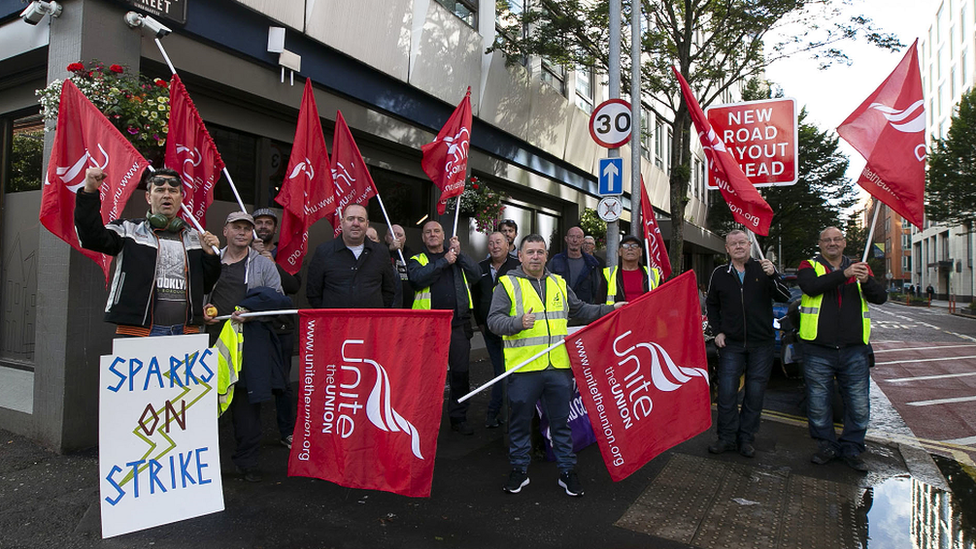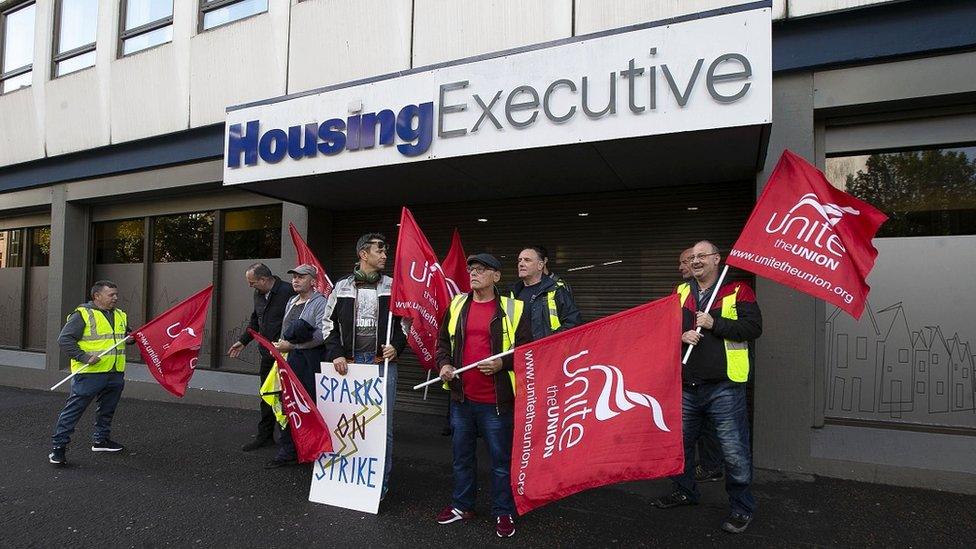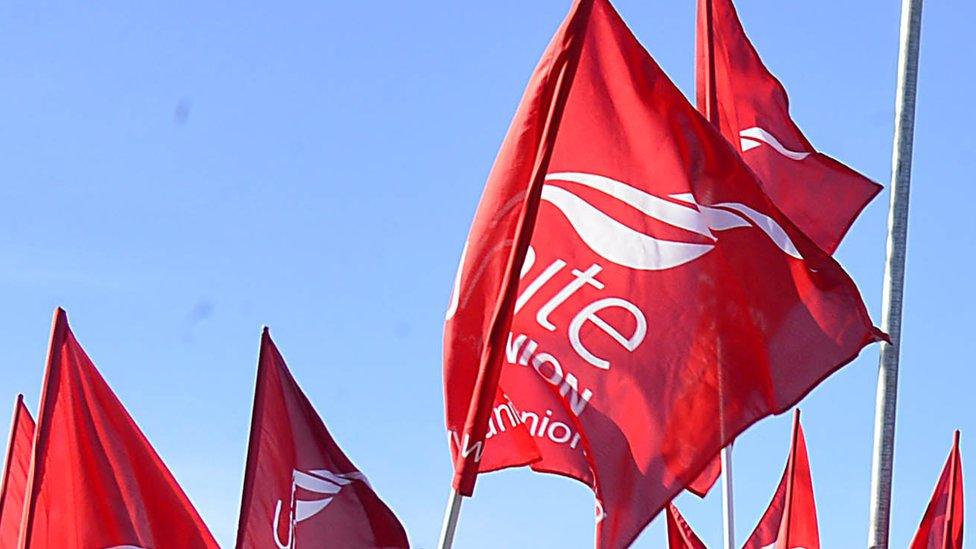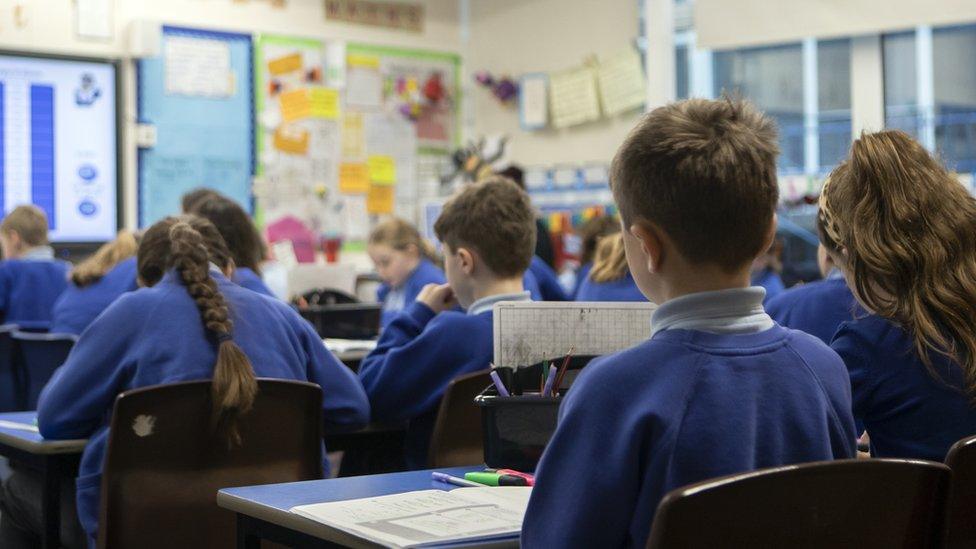Housing Executive workers begin strike over pay
- Published
- comments

Strike action is expected to affect services in Craigavon, Coleraine and parts of Belfast
Maintenance workers at the Northern Ireland Housing Executive (NIHE) have begun strike action over pay.
The trade union Unite said the dispute involves about 300 of its members and would remain in place for four weeks.
NIHE said that based on previous experience, the dispute could affect maintenance services in Craigavon, Coleraine and north and west Belfast.
It said it hoped to minimise disruption to its tenants and emergency repairs would be carried out.
'Desperate'
Speaking to the BBC's Good Morning Ulster programme, regional officer for Unite, Michael Keenan, said members are "among the most vulnerable in society".
"These people are desperate, this is why they're taking this action.
"Our members are among the lowest paid in Northern Ireland - they're visiting food banks, they just can't afford to work and that's why they've been forced into taking action."

Unite says the strike could have a "severe impact" on tenants
"We will contact tenants directly about postponements of scheduled repair works and tenants can continue to report repairs as normal through our usual channels.
"We will monitor the impact on tenants on a daily basis as the strike action continues."
The Housing Executive said pay was subject to national collective bargaining arrangements.
It added: "The pay award of 2021/22 for all Housing Executive staff was collectively agreed at a national level and the pay increases have already been implemented."
Ongoing discussions
It said discussions were ongoing over a local claim submitted by Northern Ireland Public Service Alliance (Nipsa) and Unite in June.
Mr Keenan, from Unite, said the blame for the strike "rests entirely with the Housing Executive".
"Everybody understands that inflation is biting into people's wages and people can't afford to heat their homes or buy food - understanding that doesn't put food on the table."
Related topics
- Published25 April 2022

- Published6 May 2022
